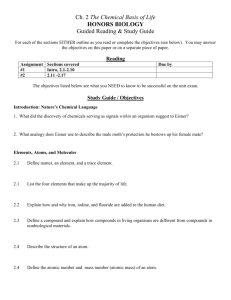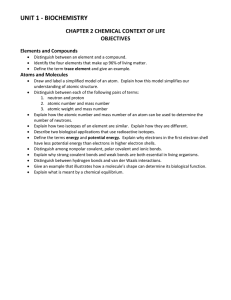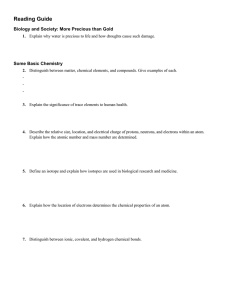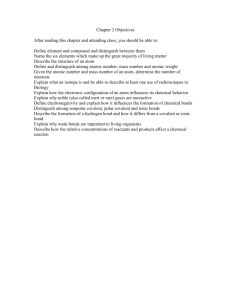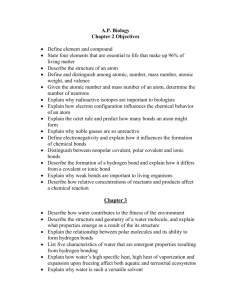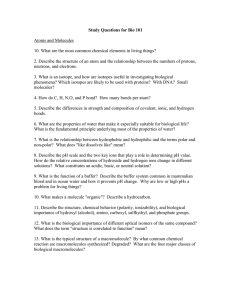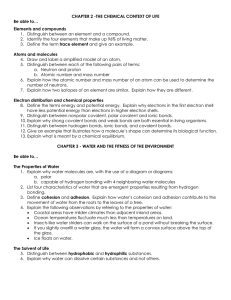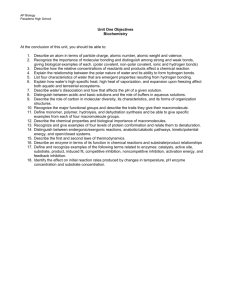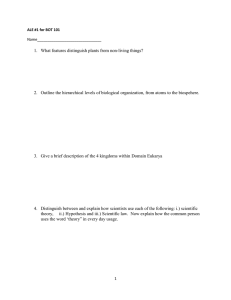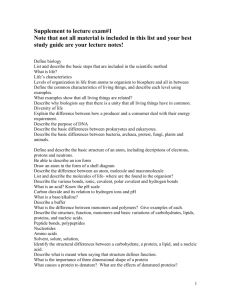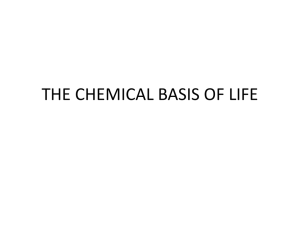Topic 2 The Chemical Basis of Life Student Objectives Elements
advertisement
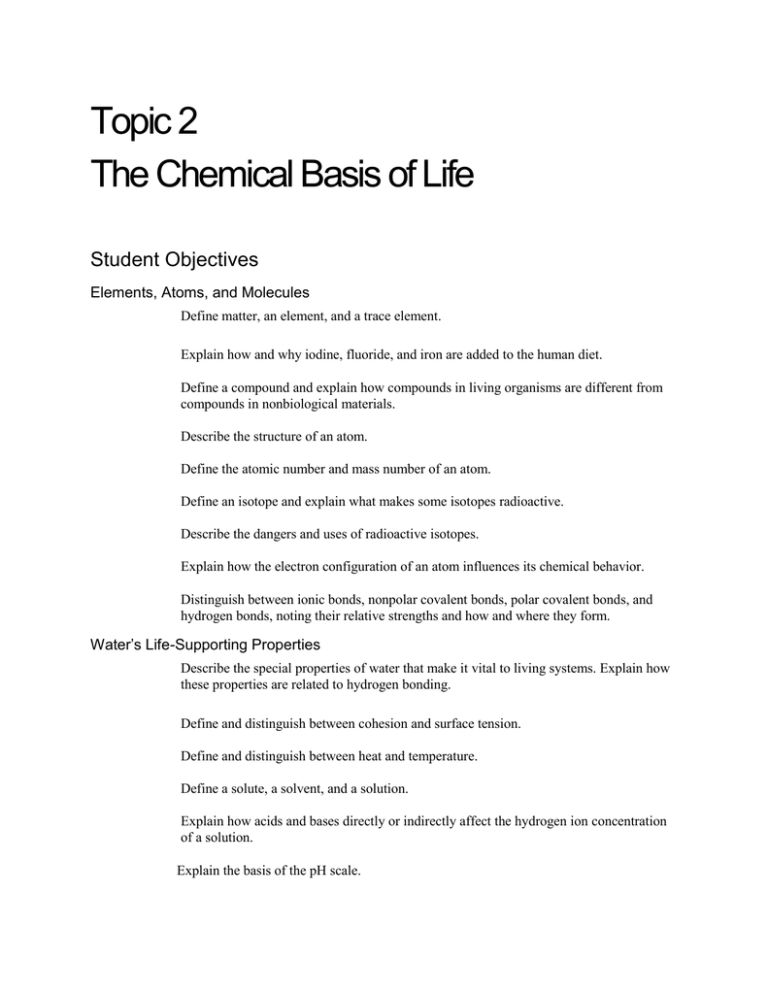
Topic 2 The Chemical Basis of Life Student Objectives Elements, Atoms, and Molecules Define matter, an element, and a trace element. Explain how and why iodine, fluoride, and iron are added to the human diet. Define a compound and explain how compounds in living organisms are different from compounds in nonbiological materials. Describe the structure of an atom. Define the atomic number and mass number of an atom. Define an isotope and explain what makes some isotopes radioactive. Describe the dangers and uses of radioactive isotopes. Explain how the electron configuration of an atom influences its chemical behavior. Distinguish between ionic bonds, nonpolar covalent bonds, polar covalent bonds, and hydrogen bonds, noting their relative strengths and how and where they form. Water’s Life-Supporting Properties Describe the special properties of water that make it vital to living systems. Explain how these properties are related to hydrogen bonding. Define and distinguish between cohesion and surface tension. Define and distinguish between heat and temperature. Define a solute, a solvent, and a solution. Explain how acids and bases directly or indirectly affect the hydrogen ion concentration of a solution. Explain the basis of the pH scale. Explain how buffers function. Explain why the search for extraterrestrial life centers on the search for water. Chemical Reactions Explain the significance of chemical reactions. Identify the reactants and products of photosynthesis.
